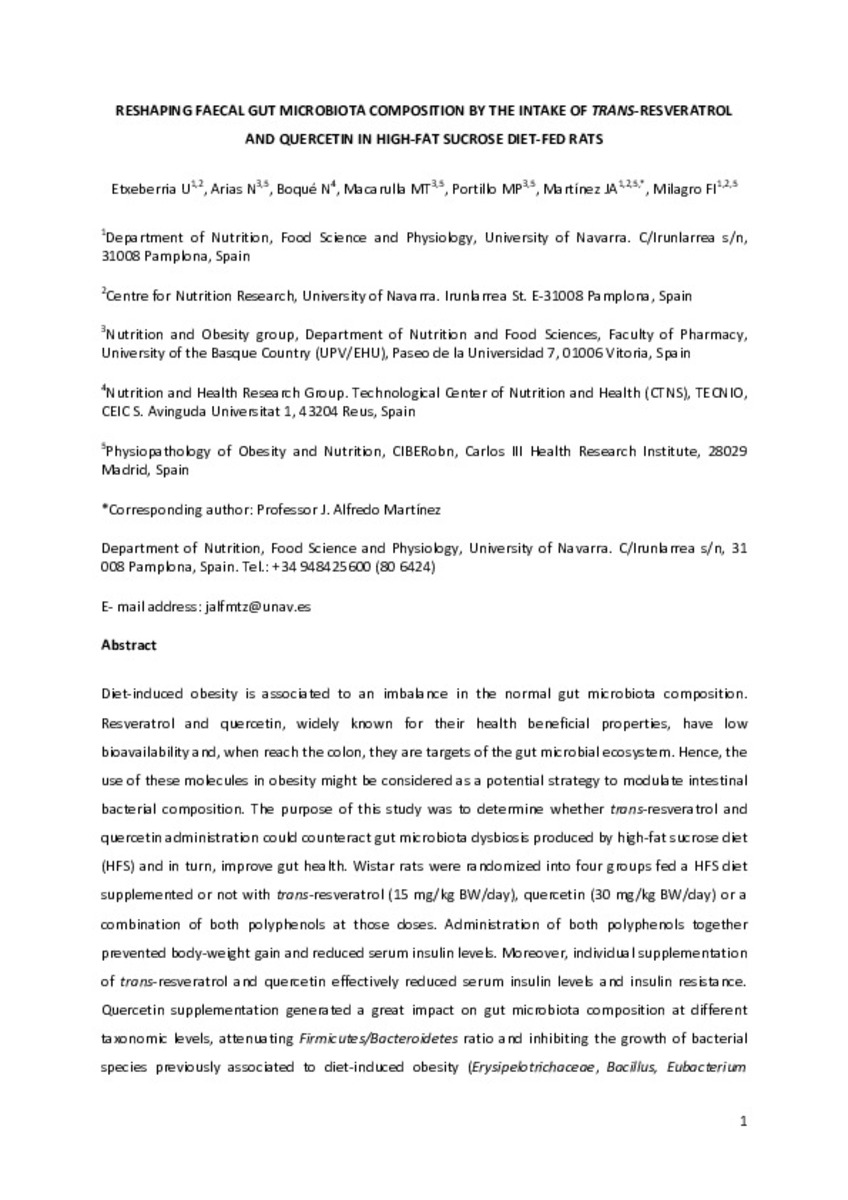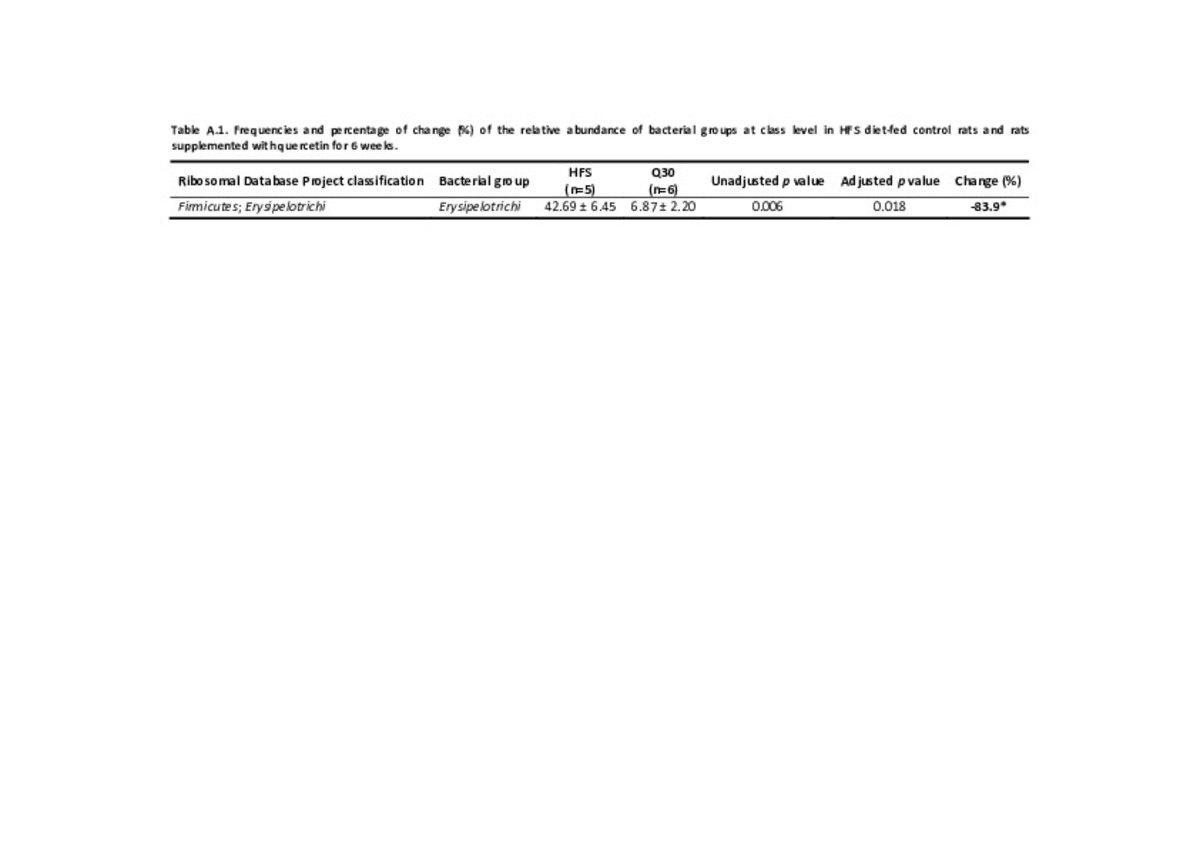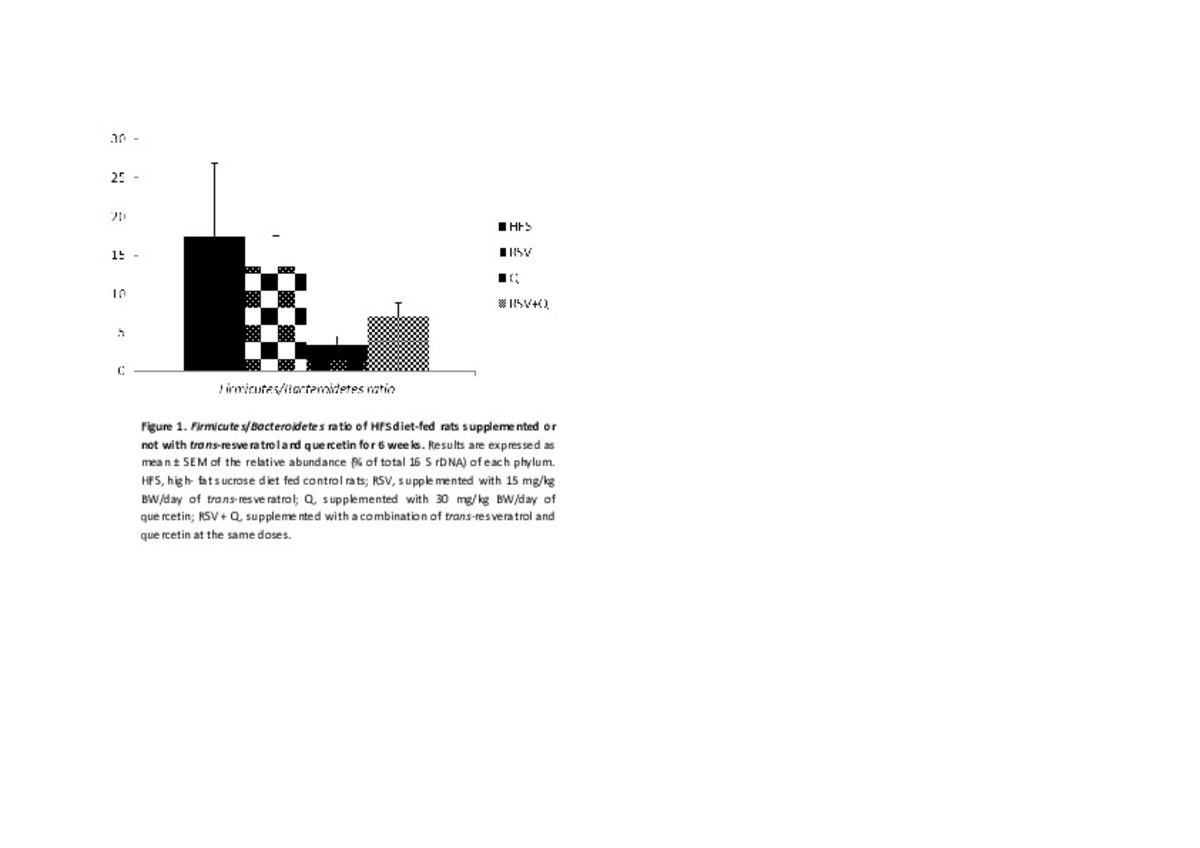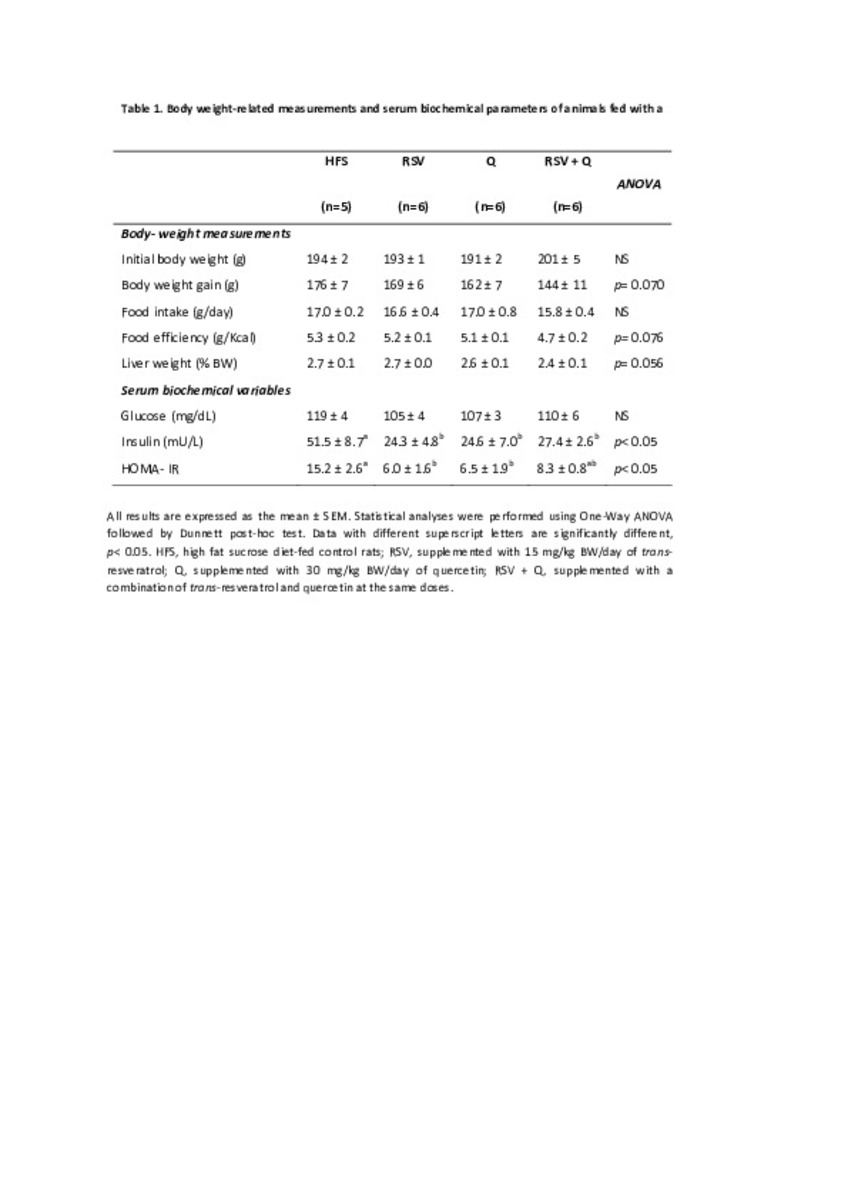Reshaping faecal gut microbiota composition by the intake of trans-resveratrol and quercetin in high-fat sucrose diet-fed rats
Keywords:
Intestinal permeability
Obesity
Inflammation
Gut bacteria
Stilbene
Flavonol
Project:
Ministerio de Economía y Competitividad (AGL2011‐27406‐ALI), Instituto de Salud Carlos III (CIBERobn), Government of the Basque Country (IT‐572‐13) and University of the Basque Country (UPV/EHU) (ELDUNANOTEK UFI11/32). Línea Especial about Nutrition, Obesity and Health (University of Navarra LE/97, Spain)
Citation:
Etxeberria U, Arias N, Boqué N, Macarulla MT, Portillo MP, Martínez JA, et al. Reshaping faecal gut microbiota composition by the intake of trans-resveratrol and quercetin in high-fat sucrose diet-fed rats. J Nutr Biochem. 2015 Feb;26(6):651–660
Statistics and impact
0 citas en

Items in Dadun are protected by copyright, with all rights reserved, unless otherwise indicated.










